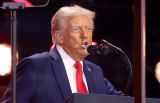While Hyperloop One test track in Nevada U.S.A. has been reportedly successful, its rival Hyperloop Transportation Technologies is considering three possible routes in an Asian country which is the Indonesia. A feasibility study amounting $2.5M is being conducted in the country to counter the first commercial implementation in UAE.
Elon Musk's Hyperloop concept is slowly turning into a futuristic transport system of the world with the United States as its first recipient through Hyperloop One. While the test track of the high-speed transit system has been successful in Nevada, an Asian country is also determined to adopt the transport technology.
A feasibility study that costs $2.5M is currently on-going in Indonesia for the three possible routes eyed by a developer named Hyperloop Transportation Technologies (HTT) under a joint venture with Indonesian partners. The parties have reportedly signed the agreement three days ago and will start mapping out soon, Tech in Asia reported.
The formed group, which will be called Hyperloop Transtek Indonesia, aims to develop Hyperloop system in the following routes: from North Sumatra connecting to the airports in the Island of Java and from Jakarta connecting to satellite town of Tangerang.
Unlike the traditional transport system HTT's version of Hyperloop system is more profitable. Aside from the fare that is regularly collected from the passengers, the company can sell off excess electricity from the integrated solar panels.
Meanwhile, Hyperloop One proposes 11 routes in the US namely: Hyperloop Massachusetts, Team Rocky Mountain Hyperloop Consortium, Team Hyperloop Missouri, Team Hyperloop Florida, Team Hyperloop West, Team Hyperloop Nevada, Team Hyperloop Midwest, Team PNW Hyperloop, Team Rocky Mountain Hyperloop, Team Colorado Hyperloop and Team Hyperloop Texas, Business Insider reported.
Although Hyperloop system is yet to be proven as realistic when it comes to cost, entrepreneurs like HTT and Hyperloop One are reportedly willing to invest on the basic technological requirements. Time will come where a depressurized long tube (capsules) which is almost vacuum inside will be the future's transportation norm.
© 2025 University Herald, All rights reserved. Do not reproduce without permission.








